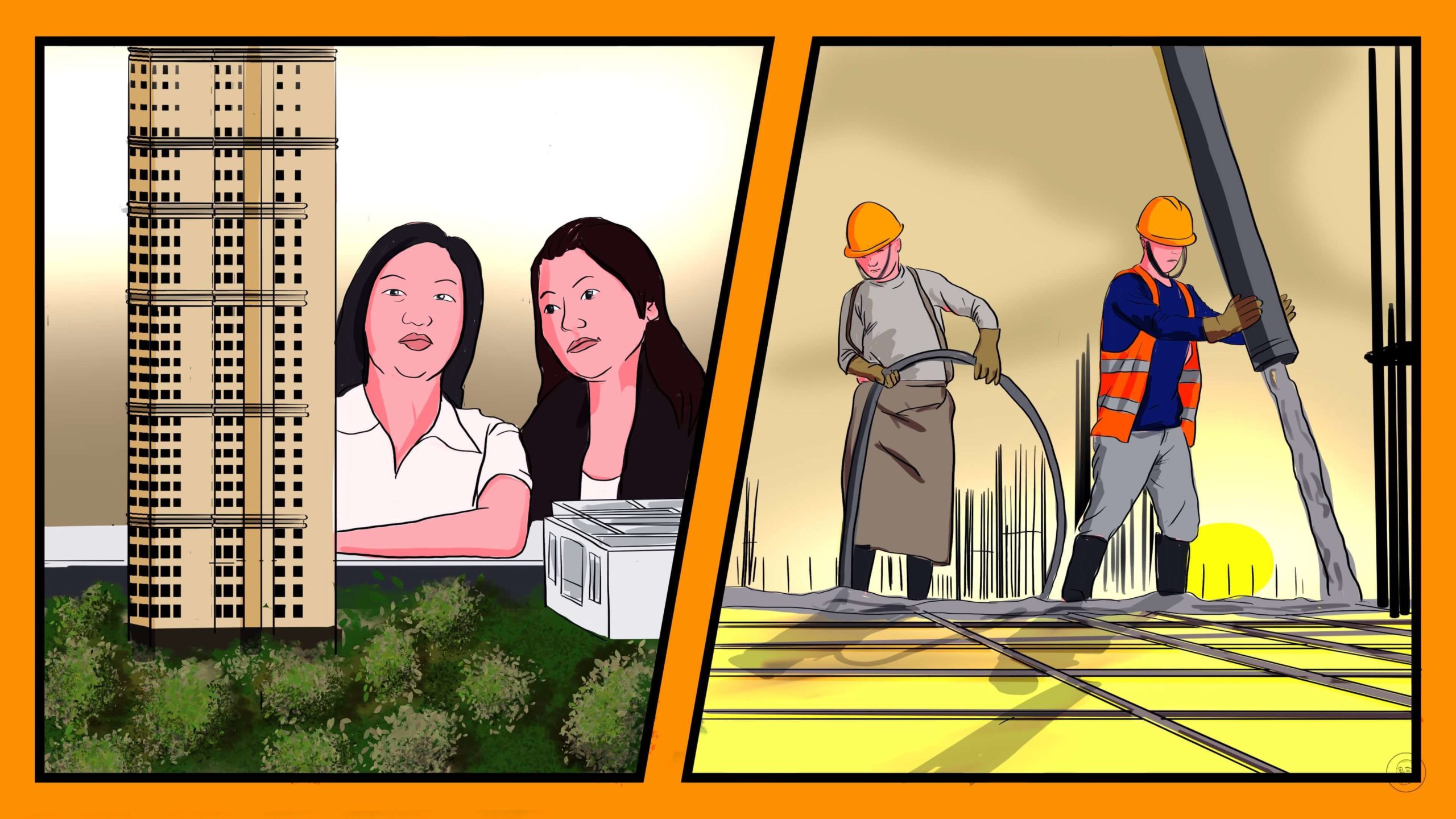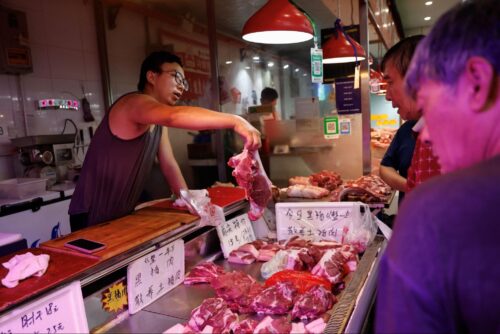China’s troubled property market: A slow burn rather than a flameout?
Rather than a big bang collapse, China’s property sector is experiencing a slow-burn deflation. And, over the course of the next five to 10 years, it will be transformed into a humdrum, low-profit sector, argues financial analyst Taylor Loeb.

As Chinese real estate prices began to slide in the summer of 2021, the sexy, clickbaity concept of an impending “Lehman moment” — with massively indebted property developer China Evergrande Group 中国恒大 being the Chinese Lehman — began popping up in headlines across the Western press.
But rather than a big bang collapse, China’s property sector is actually experiencing a slow-burn deflation. And, over the course of the next five to 10 years, it will be transformed into a humdrum, low-profit sector that accords with Xí Jìnpíng’s 习近平 oft-repeated mantra of “housing is for living in, not speculating on,” a phrase he first used at the 2016 Central Economic Work Conference.
But how did we even get to a point where comparisons to the most epic financial collapse of the 21st century seemed even remotely reasonable?
Too much of a good thing
Between 2010 and 2020, home prices doubled and developer profits quadrupled. This has made real estate a fixture of China’s economic and financial system:
- Property directly or indirectly accounts for over a quarter of China’s GDP. Nearly 28% of bank lending is extended to the sector.
- In 2021, local governments generated over 40% of their revenues from land sales.
- Perhaps most importantly, between 60% and 70% of China’s household wealth is tied up in housing — compare that to 35% in the US.
However, Beijing has long been concerned by the sector’s increasingly unsustainable mix of leverage, rampant speculation, and budgetary overreliance. Between August 2020 and February 2021, the central government enacted three major pieces of regulation that precluded highly leveraged developers from borrowing to maintain cash flow (the so-called “three red lines” policy) and constrained local governments’ ability to raise revenue via land sales.
The new no-nonsense regulations also happened to come into force at a time when China’s economy was wavering and home prices were beginning to fall from their highs in the third quarter of 2021.
The impact has been evident — by August 2022, home sales by value were down nearly 21% year-on-year. Developer defaults had ticked up. Angry buyers who had prepaid for their homes — as the vast majority of Chinese buyers do — threatened to stop paying their mortgages. Local revenue from land sales plummeted.
China news, weekly.
Sign up for The China Project’s weekly newsletter, our free roundup of the most important China stories.
Cut down to size
All of this, of course, presents a problem for Beijing. But it also presents a once-in-a-generation opportunity to restructure the property sector.
Thus far, the government response to the slowdown has been underwhelming.Real estate contributes 25% to China’s GDP, hosts the vast majority of its citizens’ savings, and funds municipal budgets across the country, but Beijing’s answer to its collapse appears incredibly weak.
It is. And intentionally so. Policymakers are refraining from extending more assistance to the property sector because of — not in spite of — its centrality in China’s economic, financial, and fiscal system. Beijing understands that the interrelated set of unique circumstances that supercharged China’s real estate market over the past two decades are not everlasting. Growth is slowing. The urbanization rate is plateauing. The amount of desirable, undeveloped land is dwindling.
As China moves into its next phase of steady, high-quality growth, Beijing wants to carve out a supporting — rather than leading — role for the property sector in the economic mix. That is, as policymakers have repeated ad nauseam over the last half-decade, it wants to “promote the steady and healthy development of the real estate market.”
The current crisis gives Beijing the chance to dictate what that next phase of development will look like. As overleveraged private developers run out of cash, they are selling projects and equity to state-owned developers. Also, without the requisite funds to participate, private developers are largely disappearing from local land auctions, as state-owned firms snap up the majority of plots. Given the state of the market, SOEs are receiving substantial discounts for their efforts. This means that, when the market stabilizes, state developers will likely once again hold a dominant position in the real estate sector — as they did prior to the sector’s opening in the 1990s. That new-old normal will be particularly serendipitous for central policymakers. Beijing has major ambitions to increase the scale of affordable rental housing across China, ambitions that will be far easier to realize through state-owned developers, who are by nature less profit-conscious than their private counterparts.
Further, the government will be able to utilize a state-dominated real estate sector to push forward other policies, like incentivizing childbirth or providing assistance to fresh college grads, through subsidies. Even those private developers that do stick around, like Country Garden 碧桂园 or Longfor 龙湖集团, will almost certainly become more amenable to government policy.
Another major policy win that Beijing hopes will result from the housing slowdown is a gradual diversion of household savings away from housing, an unproductive asset, toward the capital markets.
Winners and losers
Today, Chinese citizens invest in stocks and bonds at an extremely low rate. However, Beijing is in the midst of a serious push to get more people invested in domestic equity markets, with the hope that Chinese household savings will be a primary force in financing the next stage of China’s development, which will require major investments in sectors like advanced manufacturing, next generation IT, and new energy. Ideally, for central policymakers, hundreds of trillions of yuan will flow out of real estate and into institutionally managed stock portfolios over the next decade.
In sum, when the dust settles on China’s housing market slowdown, financially healthy state-backed developers, central policymakers, and segments of the capital markets will all be the “winners.”
The most immediate losers will be the “bad” private developers. Evergrande, one of the world’s most indebted companies, has 2 trillion yuan ($275 billion) in debt. It is never going to pay all of that back. Instead, Evergrande and others, like Yango 阳光城 and Sunac 融创中国 will be split up and sold off piece by piece — largely to state-owned firms. This also means that many creditors, particularly offshore creditors, will be left holding the bag.
The two other big losers will be homeowners themselves and local governments. But, geography will play a major role in how these players ultimately fare. Since early 2021, house prices have fallen almost 20% in tier three cities, but have actually risen, albeit marginally, in tier one and two cities. Further, a much higher proportion of third-tier city residents’ wealth is concentrated in real estate. Add to that, smaller cities are substantially more reliant on land sales for revenue. This state of affairs has the makings of a two-track crisis, one that hits less affluent regions significantly harder. If the property market is going to cause any sort of serious meltdown in the Chinese economy, it will occur in third-tier cities.
All in all, the crash and subsequent transformation of the property sector’s role in China’s economic mix will undoubtedly cause short-term pain, as the economy restructures to reflect that shift. In the areas — both sectoral and geographic — that are more dependent on property, the pain will be more severe. For many local governments, who are already facing all kinds of budgetary stress under COVID-zero and broader economic issues — the impact could very well be disastrous and lead to central bailouts.
The takeaway
The crash in home prices in China will almost certainly not lead to a widespread, systemic financial contagion à la the U.S. in the late 2000s. However, the fallout from the current slowdown will lay the groundwork for a Chinese property sector that is state-dominated, low-profit, low-speculation, and far less critical to China’s economic success.






